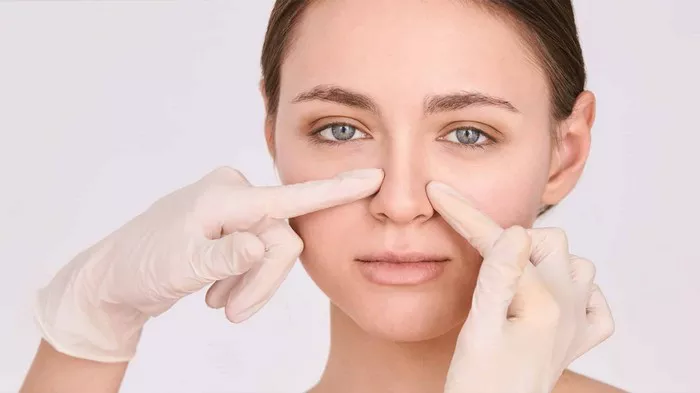Rhinoplasty, a surgical procedure aimed at reshaping the nose for aesthetic or functional reasons, requires careful consideration not only during the surgery but also throughout the recovery period. One common question that arises is: Can I eat rice after rhinoplasty? This article delves into the dietary considerations individuals should keep in mind after undergoing rhinoplasty to promote a smooth recovery while ensuring optimal healing and minimal discomfort.
Understanding the Recovery Period
Rhinoplasty is a surgical procedure that involves reshaping the bones and cartilage of the nose. While the primary goal is to enhance facial aesthetics or improve breathing function, it’s essential to recognize that the body needs time to heal and adjust after surgery. The recovery period typically involves swelling, bruising, and discomfort, which can vary depending on the extent of the procedure.
Dietary Considerations After Rhinoplasty
A balanced and nutritious diet is vital for promoting healing and minimizing the risk of complications after rhinoplasty. While there are no strict dietary restrictions, certain considerations can help optimize your recovery:
1. Hydration:
Staying hydrated is crucial for the healing process. Drinking plenty of water helps maintain bodily functions, aids in wound healing, and reduces the risk of post-operative complications. Aim for at least 8 glasses of water a day.
2. Nutrient-Rich Foods:
Focusing on nutrient-rich foods can provide the vitamins, minerals, and antioxidants necessary for the body’s recovery mechanisms. Include a variety of fruits, vegetables, lean proteins, and whole grains in your diet.
3. Anti-Inflammatory Foods:
Certain foods have anti-inflammatory properties that can help reduce swelling and promote healing. Incorporate foods rich in omega-3 fatty acids (such as salmon and flaxseeds), turmeric, ginger, and leafy greens.
4. Soft and Easy-to-Chew Foods:
In the immediate aftermath of rhinoplasty, you may experience some discomfort or limited jaw movement. Opt for soft, easy-to-chew foods that require minimal effort to eat.
5. Foods to Avoid:
While there are no strict restrictions, it’s advisable to avoid foods that may cause excessive chewing, spicy foods that can irritate the nasal passages, and foods that could potentially lead to constipation.
6. Sodium Intake:
Reducing sodium intake can help manage post-operative swelling. Processed foods and high-sodium meals can contribute to fluid retention and prolonged swelling.
7. Consult Your Surgeon:
Always consult your surgeon for specific dietary recommendations tailored to your individual case. They can provide personalized guidance based on your surgical procedure and recovery progress.
Can I Eat Rice After Rhinoplasty?
Rice is a staple food in many cultures and is commonly consumed worldwide. The decision to eat rice after rhinoplasty largely depends on how comfortable you are with chewing and the type of rice you choose:
Soft Rice: In the initial days following rhinoplasty, when discomfort and swelling are more pronounced, opt for softer types of rice. White rice or well-cooked brown rice can be easier to chew and swallow.
Avoid Excessive Chewing: If you prefer to eat rice, ensure that it’s well-cooked and not overly chewy. Avoid adding extra ingredients that require vigorous chewing.
Moderation: As with any food, moderation is key. Overeating, even soft foods, can lead to discomfort and bloating.
Rice Porridge or Congee: Rice porridge, commonly known as congee, is a soft and easily digestible rice-based dish. It can be a suitable option in the early stages of recovery.
General Dietary Tips During Recovery
Start with Light Foods: Begin with light, easy-to-digest foods immediately after surgery. Clear broths, soups, yogurt, and smoothies are excellent options.
Gradually Introduce Solid Foods: As your comfort level increases, gradually introduce solid foods into your diet. Focus on well-cooked vegetables, lean proteins, and whole grains.
Chew Slowly: Take your time when eating, and chew your food thoroughly to minimize strain on your jaw and prevent discomfort.
Avoid Straws: Drinking through a straw can create suction and potentially disrupt the healing process, especially in the nasal area. Opt for sipping from a cup or glass instead.
Conclusion
While there are no strict dietary restrictions after rhinoplasty, choosing nutrient-rich, anti-inflammatory, and easily digestible foods can aid in the healing process and reduce discomfort. The decision to eat rice after rhinoplasty depends on your comfort level and the type of rice consumed. It’s advisable to consult your surgeon for personalized dietary recommendations based on your unique recovery needs. By nourishing your body with the right foods and practicing mindful eating, you can contribute to a smoother recovery and achieve optimal results from your rhinoplasty procedure.


